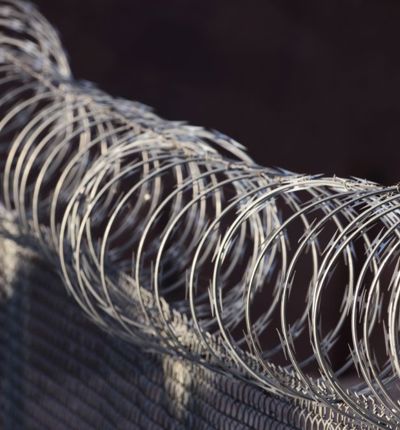
Detention of women on International Women’s Day
On International Women’s Day 2024 Stephanie Hill and Olivia Whitehorn consider the immigration detention of women
Posted on 08 March 2024
The theme of this year’s International Women’s Day is to Inspire Inclusion and to celebrate diversity and empowerment of women in all aspects of society.
However, there is an area of government practice which seems to do the opposite: the practice of detaining women, not because they have committed a crime, but under immigration powers exercised administratively by the Home Office, with very little independent oversight.
Last year, 1,369 women entered immigration detention, an increase of over 50 per cent from the year before. While the power of detention is associated with removal from the UK, only 30 per cent of women who leave detention are removed. The majority of women are instead released on immigration bail, usually by the Home Office, and often with strict conditions.
As a proportion of the overall detention population, women now account for less than one per cent. It is well-established that detention can have a lasting negative impact on mental health, for all detainees. However, the challenges faced by women in detention are compounded by their gender, with many detained women having a history of gender-based violence.
The charity Women for Refugee Women estimate that 85 per cent of asylum-seeking women in immigration detention are survivors of sexual or other gender-based violence, including domestic violence, forced marriage, Female Genital Mutilation (FGM) and trafficking. There is also overwhelming evidence that policies with the stated aim of protecting adults at risk of harm are regularly failing vulnerable detainees.
The Home Office’s powers of detention include the detention of pregnant women. In 2016, a time limit of 72 hours was introduced, which can be extended to seven days with Ministerial approval. Last year, the government sought to remove this limit, but the crucial safeguard was protected after serious concerns were raised by charities and campaigners about the risks this would create for women.
Women detained by the Home Office are currently detained in two immigration removal centres, Derwentside Immigration Removal Centre (IRC) in County Durham and Yarl’s Wood IRC in Bedfordshire. A smaller number of women are detained in prisons.
A major concern frequently raised with the detention of women in Derwentside IRC is the remoteness of the location, making it harder for women detained there to receive visits from family (including children) and from their lawyers. The Independent Monitoring Board reported that this results in a sense of isolation for women, which is only exacerbated by the poor phone signal at Derwentside, which can also result in issues accessing legal advice.
A report published by HM Chief Inspector of Prisons in December 2022, following an inspection in August 2022, raised 15 key concerns about Derwentside IRC. These included concerns around the consistency of care for women at risk of self-harm and suicide; the use of force; and the detention of women who had evidence of the deleterious effect it was having on their health and well-being. Women who had been assessed as at the highest level of risk of harm were being detained because of a lack of availability of bail accommodation. Sixteen per cent of women who spoke to His Majesty’s Inspectorate of Prisons (HMIP) reported feeling suicidal in the IRC and 68 per cent had felt depressed.
Looking ahead to the next year, the government has announced plans to convert Derwentside IRC into a male-only IRC, with women to be detained in Yarl’s Wood IRC in Bedfordshire and Dungavel IRC in Scotland.
Yarl’s Wood IRC was the main detention centre for women for many years and was severely criticised due to allegations of ill-treatment including physical and sexual abuse by guards. Women in Yarl’s Wood repeatedly participated in hunger strikes to protest against their treatment by the Home Office and the private contractors who ran the centre, Serco and G4S. Many women are therefore understandably concerned at the government’s decision to return to detaining women in the centre.
Leigh Day regularly acts for clients, male and female, who have been detained by the Home Office for months and sometimes years before they are released. One of the cruellest aspects of immigration detention is that it is indefinite: not knowing when you will be free again exacerbates its negative effects.
Charities, campaigners, lawyers and detainees themselves are all in agreement that immediate and fundamental reform is required. We look forward to celebrating an International Women’s Day when all women in the UK are free from the fear and suffering caused by immigration detention.
Stephanie Hill and Olivia Whitehorn are solicitors in the Human Rights department, who regularly act for clients in challenges relating to immigration detention. Stephanie is based in Leigh Day’s Manchester office and Olivia is based in London.




